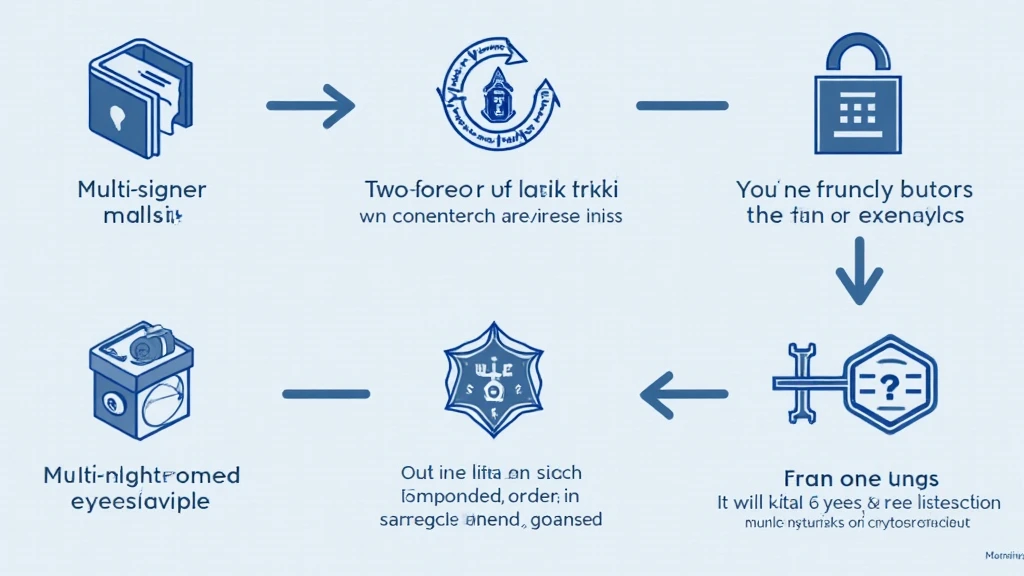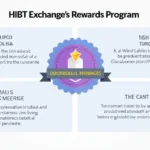Vietnamese Crypto Exchange Security Protocols: How to Safeguard Your Digital Assets
With a staggering $4.1 billion lost to DeFi hacks in 2024, the importance of robust security protocols for cryptocurrency exchanges cannot be overstated. As cryptocurrencies gain traction in the Vietnamese market, understanding and implementing effective security measures is crucial for safeguarding digital assets. In this article, we aim to provide valuable insights into the essential security protocols that should be adopted by crypto exchanges in Vietnam.
Understanding the Risks: What Makes Crypto Exchanges Vulnerable?
To appreciate the need for stringent security protocols, it’s important to understand the vulnerabilities present in crypto exchanges. These include:
- Hacking Attempts: As the value of cryptocurrencies rises, so does the interest of cybercriminals. A successful breach can result in catastrophic financial losses.
- Phishing Attacks: Users may unknowingly provide their credentials to malicious sites, leading to unauthorized access.
- Insider Threats: Employees with access to sensitive information may unintentionally or maliciously compromise security.
- Technical Glitches: Software bugs or network issues can also create vulnerabilities that hackers might exploit.
Establishing Strong Security Protocols: Best Practices
So, how can Vietnamese crypto exchanges establish a secure framework? Implementing the following best practices can significantly enhance security:

1. Multi-Signature Wallets
Using multi-signature wallets can help greatly reduce the risk of theft. This method requires multiple private keys to authorize a transaction, which means that even if one key is compromised, funds cannot be transferred without additional keys. It’s akin to needing multiple keys to access a bank vault.
2. Two-Factor Authentication (2FA)
Requiring users to verify their identity through an additional method—like a text message or email verification—can protect against unauthorized access. This is a simple yet effective tool that significantly enhances user account security.
3. Regular Security Audits
Conducting regular security audits ensures that any vulnerabilities are identified and addressed promptly. Engaging third-party professionals to conduct these audits can help provide an outside perspective on the system’s security.
4. Customer Education
Empowering users with knowledge about phishing scams, secure practices, and the importance of not sharing personal information can greatly reduce the success rate of attacks aimed at individuals.
Vietnamese Market Trends: The Rise of Crypto Adoption
Vietnam has seen remarkable growth in crypto adoption, with a reported 28.3% increase in active users over the past year. This surge in interest provides both opportunities and challenges for exchanges. As more users enter the cryptocurrency space, the demand for secure trading platforms rises.
According to a report by hibt.com, the Vietnamese crypto market is estimated to reach a value of $1.5 billion in the next five years. This presents an urgency for exchanges to adopt stringent security protocols to attract and retain customers, thereby ensuring safety and trust.
The Role of Decentralization in Security
Another security approach gaining traction is decentralization. By decentralizing assets and transaction processes, exchanges can reduce the risk associated with centralized points of failure. Utilizing blockchain technology effectively can help in reducing risks and enhance trust among users.
Staying Ahead of Regulations: Compliance is Key
As crypto regulations evolve in Vietnam, compliance becomes crucial. Adhering to local laws not only helps in avoiding penalties but also builds credibility with users. Notably, in 2025, stricter compliance laws are expected to come into effect, emphasizing the importance of security in exchange operations.
Conclusion: Security as a Competitive Advantage
In summary, for Vietnamese crypto exchanges, prioritizing security protocols not only minimizes risks but can also serve as a competitive advantage. Users are more likely to engage with platforms demonstrating a commitment to secure practices. Exchange operators should implement multi-signature wallets, 2FA, regular audits, and education while maintaining compliance with evolving regulations.
In the ever-growing landscape of cryptocurrency, security is not just a requirement; it’s an assurance of safety for the users. By investing in robust security measures, Vietnamese exchanges can foster trust, ensure user retention, and continue to thrive amid rapid digital evolution.
As we look to the future of cryptocurrency in Vietnam and beyond, remember that staying informed and proactive in the face of cyber threats is key. For a secure cryptocurrency trading experience in Vietnam, it’s essential to understand and implement the protocols discussed above.
For more insights, ensure to keep up with the latest industry reports and keep your digital assets safe. Remember, adhering to security standards isn’t just about compliance; it’s about cultivating trust in your trading environment.
Author: Dr. Nguyen Van A, a cybersecurity expert with over 15 published papers on blockchain security. Dr. A has led numerous audits on top-tier crypto projects and has been an advocate for secure trading practices in Vietnam. Not financial advice. Consult local regulators.





